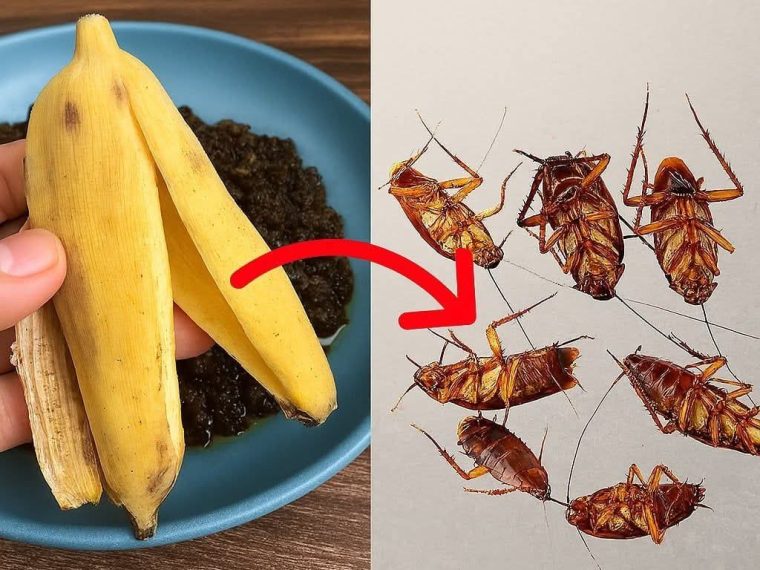Cockroaches are not just an unsightly nuisance—they are also carriers of harmful bacteria, allergens, and even parasites. Many people turn to chemical pesticides for quick results, but these can be toxic to humans, pets, and the environment. Fortunately, there are safe, natural, and effective alternatives you can use to kill cockroaches overnight—no harsh pesticides needed!
🪳 Why Are Cockroaches Dangerous?
Before we dive into the natural solutions, it’s important to understand the threat:
- Health Hazards: Cockroaches can carry over 30 species of bacteria, including Salmonella and E. coli, which can lead to food poisoning and gastrointestinal distress.
- Allergies & Asthma: Their droppings, saliva, and shedding body parts are common triggers for asthma and allergic reactions, especially in children.
- Rapid Breeding: A single female cockroach can produce hundreds of offspring in her lifetime.
✅ Natural Methods to Kill Cockroaches Overnight
1. Baking Soda and Sugar Trap
This is one of the most effective DIY cockroach killers.
How it works: Sugar lures the roaches, while the baking soda reacts with their digestive system, killing them.
Recipe:
- Mix equal parts of baking soda and sugar.
- Place the mixture in shallow dishes or bottle caps.
- Set them in areas where you’ve seen roach activity (kitchen corners, under sinks, behind appliances).
Results: You should see a significant reduction overnight.
2. Boric Acid and Flour Balls
How it works: Boric acid damages a cockroach’s nervous and digestive systems.
Recipe:
- Mix 1 part boric acid, 1 part white flour, and 1 part sugar.
- Form into small balls and place in corners, behind furniture, and along cracks.
⚠️ Caution: Boric acid is natural, but still toxic to pets and kids. Use with care.
3. Diatomaceous Earth (DE)
What it is: A natural powder made from fossilized aquatic organisms.
How it works: It dehydrates cockroaches by breaking down their exoskeleton.
How to use:
- Sprinkle food-grade DE in a thin layer along baseboards, under cabinets, and near garbage areas.
- Leave it overnight and vacuum in the morning.
✅ Safe for humans and pets, but wear a mask while applying to avoid inhaling fine particles.
4. Soapy Water Spray
Cockroaches breathe through their skin. Soapy water blocks their pores and suffocates them.
How to use:
- Mix water with a few drops of dish soap in a spray bottle.
- Spray directly on cockroaches when you see them.
Great for instant results, though not as effective for full infestation control.
5. Bay Leaves and Essential Oils (Repellents)
Bay leaves, peppermint, and eucalyptus oil are natural repellents.
How to use:
- Crush bay leaves and place them in corners and cupboards.
- Mix 10 drops of essential oil with water in a spray bottle and spritz around the house.
These don’t kill roaches but help drive them away.
🧪 Backed by Studies
- Study (Journal of Economic Entomology, 2013): Diatomaceous earth was found to significantly reduce German cockroach populations in infested homes.
- Entomological Research (2007): Boric acid is a low-toxicity alternative to conventional insecticides with high mortality rates in cockroaches.
- University of Florida, IFAS Extension: Baking soda and sugar traps are effective for light to moderate infestations when used consistently.
🔍 Where to Place Your Natural Remedies
Focus on:
- Under the sink
- Behind the refrigerator
- Inside kitchen cabinets
- Around drains
- Garbage bins
Cockroaches love warm, dark, and moist places.
🧼 Prevention Tips to Avoid Reinfestation
- Keep kitchen and counters clean.
- Fix leaks and reduce moisture.
- Store food in airtight containers.
- Seal cracks and gaps in walls and floors.
- Take out trash regularly.
📝 Final Thoughts
You don’t need harsh chemicals to win the war against cockroaches. With a little knowledge and the right natural ingredients, you can kill cockroaches overnight, protect your health, and keep your home pest-free—without putting your family or pets at risk.
If the infestation persists despite your efforts, consult a licensed pest control professional for safe and eco-friendly options.





